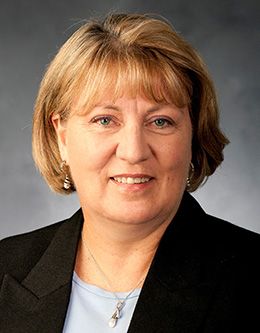
Ramona O. Hopkins
When Ramona O. Hopkins’s oldest son, Joshua, was pinned underneath a garage door, he suffered from anoxia, or lack of oxygen to the brain. While her son’s condition improved drastically with therapy, she was shocked to find that very little research had been published on anoxia. Though it made no sense with her schedule at the time, the lack of research on anoxia inspired her to pursue a PhD in psychology. Hopkins completed her doctorate degree and went on to study the cognitive, psychological, and quality-of-life outcomes for those who suffer from anoxia.
In her 2011 BYU devotional, Hopkins spoke about the journey of finding meaning in her son’s devastating experience. “All of us will experience difficult challenges in life,” she says. “How you deal with and overcome adversity is what is important.”
Dr. Hopkins has spent a significant amount of time gaining education and researching and writing about psychology, specifically brain-behavior relationships. She earned a bachelor’s degree in nursing, a master’s degree in psychology, a PhD in psychology, and completed a post-doctoral fellowship with the department of hyperbaric medicine at LDS Hospital. Additionally, Dr. Hopkins has contributed to two published books, has written over 200 scholarly articles, edited 30 book chapters, and has an impressive list of hundreds more published abstracts, editorials, and other publications.
In addition to being a clinical research investigator at the Intermountain Medical Center in Murray, Dr. Hopkins is a professor in the psychology department and neuroscience center at Brigham Young University. In 2020, she became a recipient of BYU’s prestigious Karl G. Maeser Distinguished Lecturer Award.

